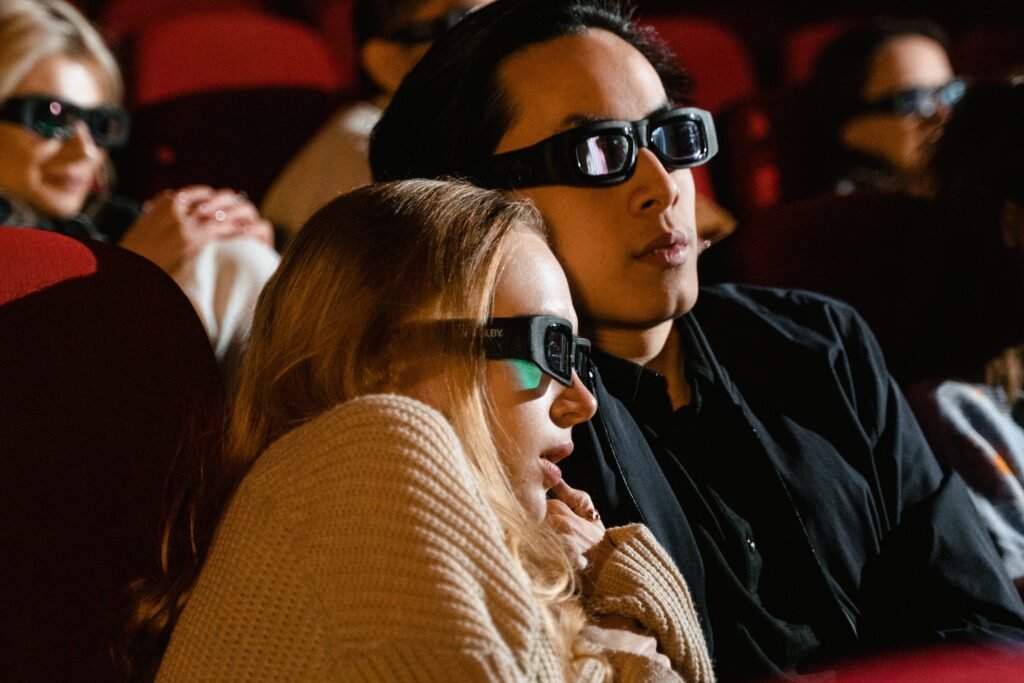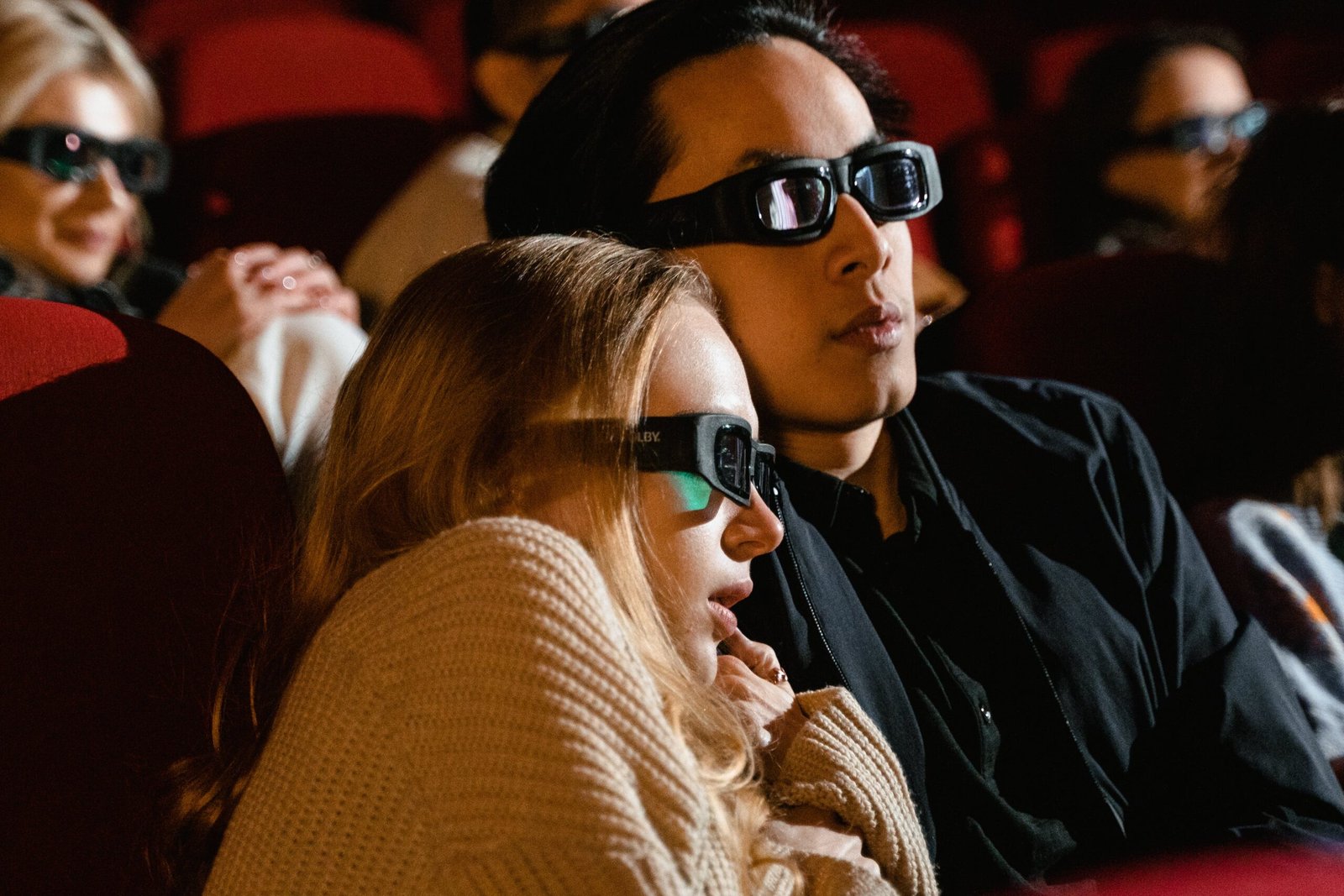In this fascinating article, we’ll be exploring the intriguing topic of how attitudes towards sex and intimacy in dating have evolved across genders. Over the years, societal norms and expectations have undergone significant changes, leading to shifts in how men and women perceive and approach these intimate aspects of relationships. So, grab a cup of tea or coffee, settle in, and let’s embark on this enlightening journey together as we delve into the fascinating world of shifting attitudes towards sex and intimacy in dating!
Shift in Gender Roles
Traditional Gender Roles
In traditional gender roles, there were clear expectations and stereotypes placed upon individuals based on their gender. Men were often expected to be strong, assertive, and the primary breadwinners of the family, while women were expected to be nurturing, supportive, and tasked with taking care of the household and children. These rigid roles limited the freedom and opportunities for individuals to explore their own desires and aspirations.
Breaking Stereotypes
In recent years, there has been a significant shift in breaking traditional gender stereotypes. People are challenging societal norms and expectations, allowing individuals to express themselves authentically without being confined by gender roles. Men are now embracing their nurturing side and becoming more involved in caregiving and household responsibilities, while women are pursuing careers and leadership roles previously considered male-dominated fields. This breaking of stereotypes has created space for more fluidity and diversity in gender expression.
Changing Expectations
With the breakdown of traditional gender roles, the expectations within relationships have also undergone a transformation. Mutual respect and shared responsibilities are now valued over rigid gender-specific roles. This change allows for a more egalitarian approach to relationships, with couples making decisions together and aiming for a more balanced distribution of labor and emotional support. The dynamics between genders have become more flexible, enabling individuals to define their roles and expectations based on their own preferences and strengths.
Cultural Influences
Religious and Moral Values
Religious and moral values have played a significant role in shaping attitudes towards sex and intimacy in dating. In some traditional religious settings, premarital sex and non-heteronormative relationships were considered taboo, and individuals were expected to maintain chastity until marriage. However, with the increasing diversity of religious beliefs and the rise of more progressive interpretations, attitudes are shifting. Many religions now emphasize the importance of consent, respect, and shared values in relationships, acknowledging that healthy sexuality is an essential aspect of human experience.
Media and Pop Culture
Media and pop culture have a profound influence on shaping societal attitudes towards sex and intimacy. Historically, media representations often perpetuated gender stereotypes and objectification, portraying women primarily as sexual objects for male pleasure. However, there has been a recent surge in media and entertainment content that challenges these norms. Women are now depicted as strong, independent, and sexually empowered individuals, while men are shown as emotionally connected and respectful partners. These new narratives contribute to a more inclusive and positive portrayal of diverse relationships and sexual experiences.
Education and Awareness
Education and awareness have been instrumental in shifting attitudes towards sex and intimacy in dating. Comprehensive sex education programs now focus on consent, healthy relationships, and the importance of communication. These programs aim to provide individuals with the necessary knowledge and skills to engage in safe and consensual sexual relationships. Additionally, awareness campaigns, workshops, and discussions have helped break down stereotypes and foster open-mindedness towards diverse sexual orientations and gender identities. Increased education and awareness have empowered individuals to make informed choices and challenge societal expectations.

Evolution of Online Dating
Impact of Technology
The advent of technology has revolutionized the dating landscape, impacting attitudes towards sex and intimacy. Online dating platforms have provided a convenient and accessible way for people to connect with potential partners. This shift in dating culture has contributed to a greater acceptance of meeting partners through digital means, reducing the stigma previously associated with online dating. Technology has broadened the dating pool and allowed individuals to explore their desires and preferences more easily, promoting open-mindedness and inclusivity.
Digital Platforms and Disinhibition
Digital platforms have created a sense of disinhibition in the dating world. People feel more comfortable expressing their desires and preferences online, as it provides a certain level of anonymity and distance. This disinhibition can lead to more open conversations about sex and intimacy, allowing individuals to communicate their needs and boundaries more explicitly. However, it is crucial to navigate this disinhibition responsibly, respecting others’ boundaries, and ensuring enthusiastic consent throughout the online dating experience.
Virtual Connections
The evolution of online dating has also fostered virtual connections, especially during times of physical distance or when individuals prefer a more gradual approach to sexual intimacy. Through video chats and virtual dates, people can establish emotional connections before engaging in physical intimacy. This shift in prioritizing emotional intimacy over solely physical attraction has influenced attitudes towards sex and intimacy in dating. Virtual connections provide an opportunity for individuals to communicate and establish trust, creating a stronger foundation for a future physical relationship.
Communication and Consent
Open and Honest Dialogues
Open and honest dialogues are essential in navigating attitudes towards sex and intimacy in dating. Clear and direct communication about desires, boundaries, and expectations promotes understanding and fosters consent. Creating a safe space for open conversations allows individuals to express their needs and preferences without fear of judgment or rejection. By actively listening and engaging in meaningful discussions, couples can establish mutual understanding, leading to healthier and more satisfying sexual relationships.
Establishing Boundaries
Establishing boundaries is an integral part of ensuring consent and maintaining healthy relationships. Each individual has different comfort levels, and it is crucial to communicate and respect these boundaries. Mutual agreement and ongoing discussions about boundaries create a safe and consensual environment. Respect for boundaries demonstrates care and consideration for each other’s emotional and physical well-being, promoting trust and intimacy within the relationship.
Enthusiastic Consent
The concept of enthusiastic consent emphasizes the importance of actively enthusiastic agreement between all parties involved in sexual activities. It requires clear and affirmative communication rather than assuming consent based on silence or lack of resistance. Prioritizing enthusiastic consent cultivates a culture of respect where all individuals feel valued and empowered in their sexual experiences. By prioritizing enthusiastic consent, attitudes towards sex and intimacy in dating have shifted towards a focus on mutual pleasure, respect, and the overall well-being of all individuals involved.

Sexual Liberation and Empowerment
Embracing Sexual Freedom
Sexual liberation and empowerment have played a significant role in shaping attitudes towards sex and intimacy in dating. Society’s growing acceptance and celebration of diverse sexual orientations and preferences have allowed individuals to embrace their sexual freedom without fear of judgment or discrimination. People are encouraged to explore their desires and engage in consensual sexual experiences, breaking free from societal norms and expectations.
Breaking Taboos
As attitudes continue to shift, taboos surrounding various sexual practices and preferences are slowly being broken. Public discussions about topics such as non-monogamy, BDSM, and alternative relationship arrangements have become more commonplace, challenging the traditional notions of what constitutes a “normal” or “acceptable” sexual relationship. Breaking these taboos allows individuals to express their desires authentically and seek partners who share their interests and preferences without shame or stigma.
Exploration of Desire
Attitudes towards sexual desire have become more accepting and open-minded. The exploration and expression of desire are now celebrated, as individuals are encouraged to understand and acknowledge their own sexual needs and preferences. This shift has led to a greater emphasis on sexual pleasure and satisfaction within relationships, fostering an environment where partners can communicate and fulfill each other’s desires consensually.
Changing Priorities in Relationships
Shift towards Emotional Intimacy
Attitudes towards sex and intimacy in dating have shifted towards prioritizing emotional intimacy. While physical attraction and compatibility remain important, individuals are increasingly valuing emotional connection and compatibility as foundations for healthy and fulfilling relationships. By placing a greater emphasis on emotional intimacy, couples are building stronger foundations for long-lasting relationships that are centered around trust, support, and understanding.
Delaying Marriage and Parenthood
The shifting attitudes towards sex and intimacy have also resulted in a delay in marriage and parenthood for many individuals. With a focus on personal growth, career development, and finding the right partner, people are choosing to wait longer before committing to marriage or starting a family. This delay allows individuals to explore their own desires and goals, resulting in more informed decisions about their relationships and future parenting roles.
Focus on Personal Growth
As attitudes towards sex and intimacy evolve, more individuals are prioritizing personal growth and self-discovery within relationships. Rather than relying solely on a partner for fulfillment and happiness, people are seeking to cultivate their own personal interests, passions, and goals. This shift allows for more balanced and fulfilling relationships where both partners can support and nurture each other’s individual growth.

Influence of Feminism
Challenging Gender Norms
Feminism has had a significant impact on shifting attitudes towards sex and intimacy in dating. Feminist movements have challenged traditional gender norms and expectations, advocating for equality and autonomy for all genders. By questioning the societal constructs that limit individuals based on their gender, feminism has paved the way for more inclusive and egalitarian relationships, where power dynamics are balanced and communication is prioritized.
Empowering Women’s Choices
Feminism has empowered women to take control of their own desires and choices within their relationships. Women are no longer constrained by societal expectations and are free to explore their own sexual preferences, desires, and boundaries. This empowerment has led to a greater sense of agency, allowing women to make informed decisions about their bodies, relationships, and sexual experiences without judgment or shame.
Sexual Equality
Feminism has also led to a push for sexual equality, recognizing that both men and women should have equal rights, opportunities, and responsibilities within relationships. Attitudes towards sex and intimacy now emphasize the importance of mutual pleasure, communication, and consent, regardless of gender. This shift towards sexual equality fosters healthier and more fulfilling relationships, where both partners can actively participate in the decision-making and nurturing of their physical and emotional connection.
Navigating Hookup Culture
Casual Sex and Gender Dynamics
The rise of hookup culture has influenced attitudes towards sex and intimacy, particularly in casual encounters. Historically, casual sex was often stigmatized or associated with negative connotations, particularly for women. However, attitudes have evolved, and casual sex is now more accepted and normalized in many societies. This shift has challenged traditional gender dynamics by allowing individuals of all genders to explore their desires and engage in consensual casual encounters without judgment.
Understanding Hookup Expectations
Navigating hookup culture involves a clear understanding of expectations and boundaries. Communication becomes essential in ensuring both parties are on the same page regarding the nature of their encounter. While some individuals may seek purely physical pleasure, others may desire emotional connection alongside physical intimacy. Being upfront and honest about expectations reduces misunderstandings and ensures a more positive and consensual experience for all involved.
Consequences and Emotional Impact
Casual sex within hookup culture may come with potential consequences and emotional impact. It is essential for individuals to be aware of and prepared for these potential outcomes. Emotional attachment, feelings of regret, or the desire for a deeper connection may arise after casual encounters. Open communication, self-awareness, and understanding one’s own emotional needs and limits can help individuals navigate hookup culture and manage potential consequences.
Conservative vs Liberal Views
Cultural and Political Divides
Attitudes towards sex and intimacy in dating often vary across cultural and political divides. Conservative views tend to emphasize traditional values, with a more limited acceptance of non-normative sexual orientations, gender expressions, and relationship dynamics. Liberal views, on the other hand, prioritize individual autonomy, inclusivity, and a broader acceptance of diverse sexual identities and relationship arrangements. These cultural and political divides influence societal norms and expectations, shaping attitudes towards sex and intimacy within different communities.
Differing Views on Sexuality
Conservative and liberal views often differ in their understandings and acceptance of sexuality. Conservative views may be rooted in beliefs that emphasize abstinence until marriage, the importance of procreation within traditional heterosexual relationships, and restrictions on non-heteronormative expressions of sexuality. Liberal views tend to embrace sexuality as a natural and diverse aspect of human identity. They emphasize the importance of consent, individual autonomy, and the celebration of diverse sexual orientations, genders, and relationship dynamics.
Implications for Relationships
The influence of conservative and liberal views on attitudes towards sex and intimacy in dating has implications for relationships. While conservative views may promote a more structured and traditional approach to relationships, liberal views allow for greater flexibility, acceptance, and exploration of diverse desires and relationship arrangements. These differing views can influence partner selection, relationship dynamics, and overall satisfaction within relationships, shaping individuals’ experiences of sex and intimacy.
The Role of Education
Sex Education
Comprehensive sex education plays a crucial role in shaping attitudes towards sex and intimacy in dating. Sex education programs that provide accurate information about consent, sexual health, contraception, and healthy relationships empower individuals to make informed decisions about their own bodies and sexual experiences. By equipping individuals with the knowledge and skills to navigate relationships and sexual encounters responsibly, sex education promotes healthier attitudes and behaviors towards sex and intimacy.
Relationship Skills Training
In addition to sex education, relationship skills training is essential in fostering healthy attitudes towards sex and intimacy in dating. Relationship skills training focuses on effective communication, conflict resolution, and the development of emotional intelligence. These skills promote healthy relationship dynamics, respect for boundaries, and the ability to navigate consensual sexual experiences. By providing individuals with the tools to build and sustain healthy relationships, relationship skills training encourages positive attitudes towards sex and intimacy.
Promoting Healthy Attitudes
Education, both in terms of sex education and relationship skills training, plays a vital role in promoting healthy attitudes towards sex and intimacy. By challenging stereotypes, providing accurate information, and fostering meaningful discussions, education empowers individuals to make informed choices, communicate effectively, and establish boundaries within their relationships. Promoting healthy attitudes towards sex and intimacy contributes to a more inclusive, respectful, and satisfying dating culture overall.
Christopher Conway, the innovative mind behind “Love Blueprints,” is a seasoned relationship expert and author. His insightful guidance, drawn from years of experience and study, offers transformative strategies for modern love and dating. Christopher’s commitment to enhancing romantic connections has made “Love Blueprints” a go-to resource for those navigating the complexities of relationships.




